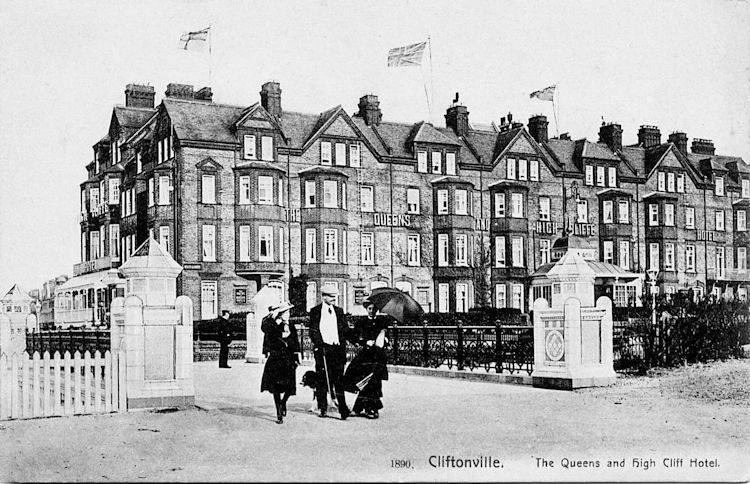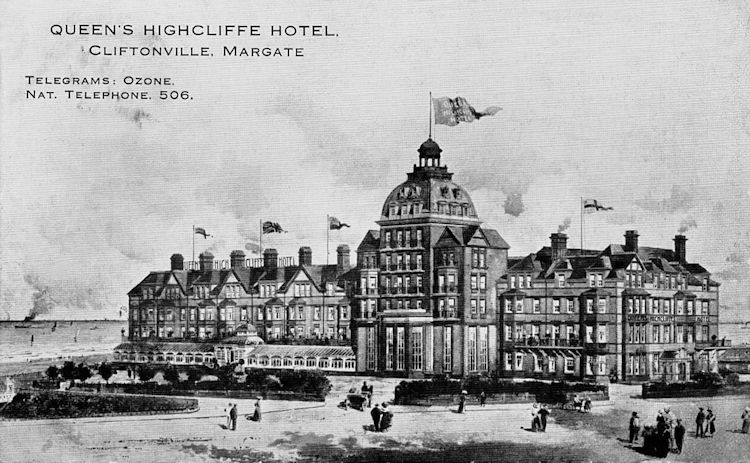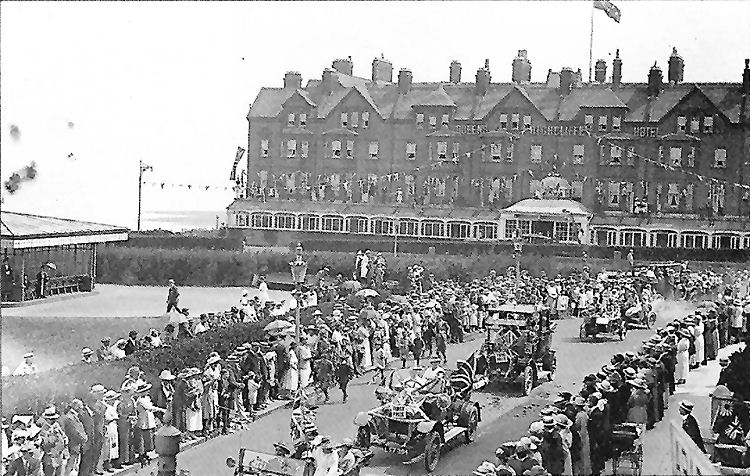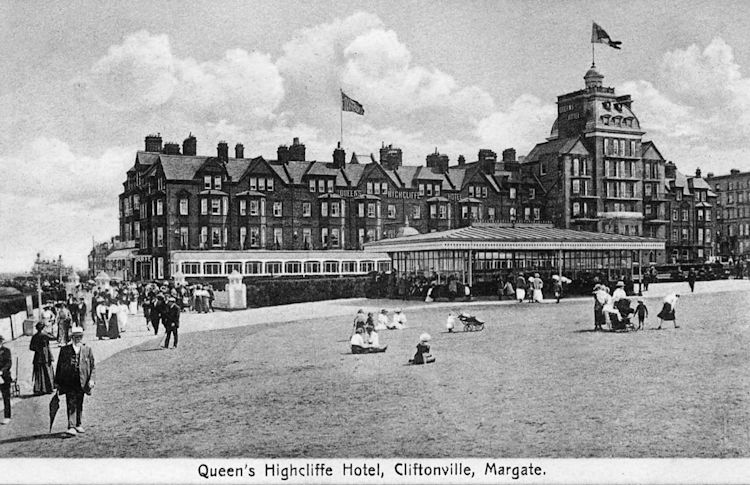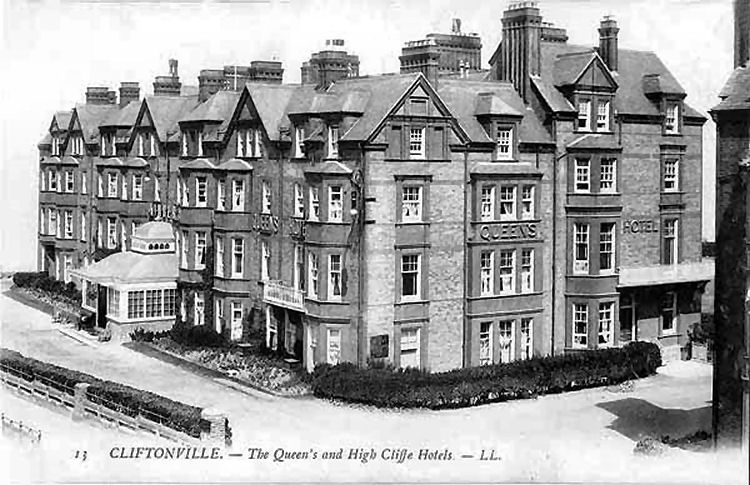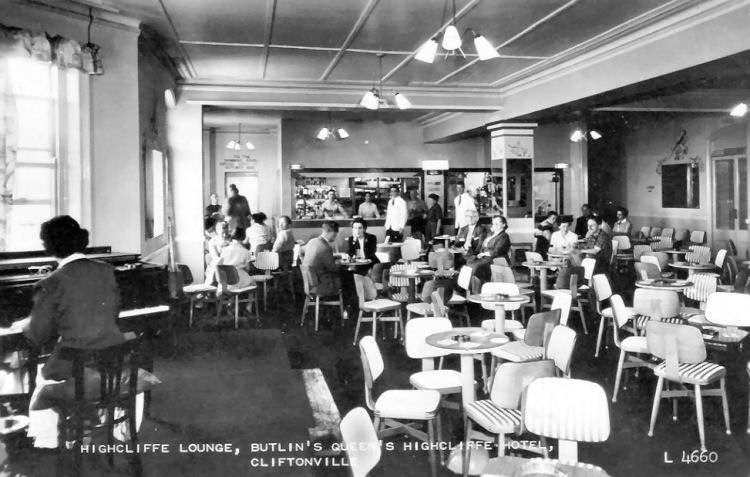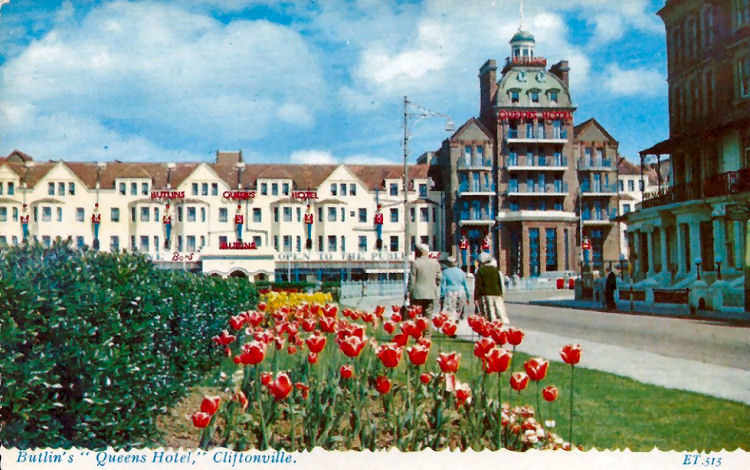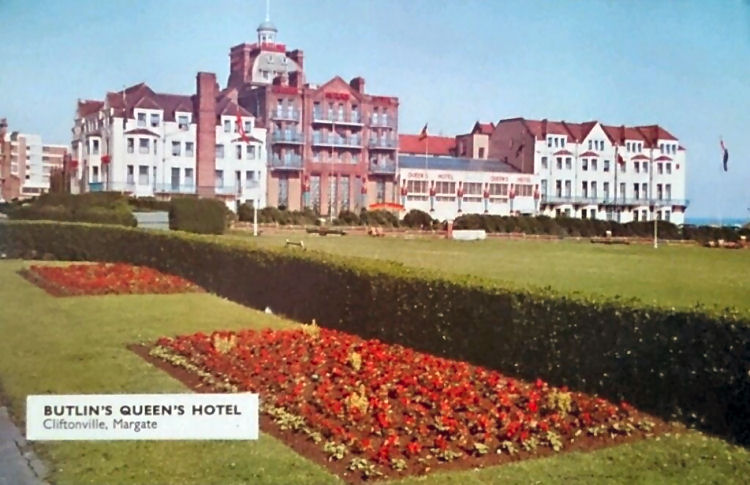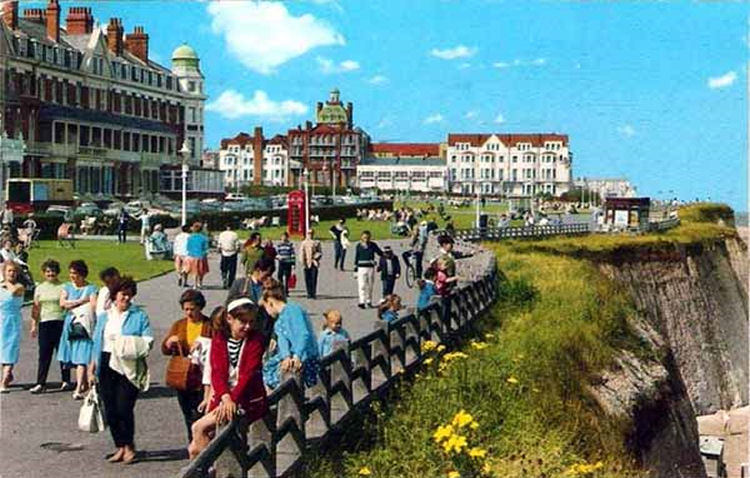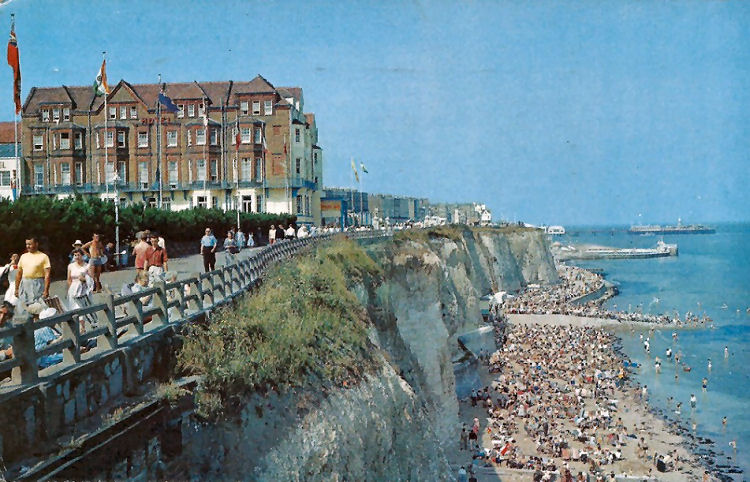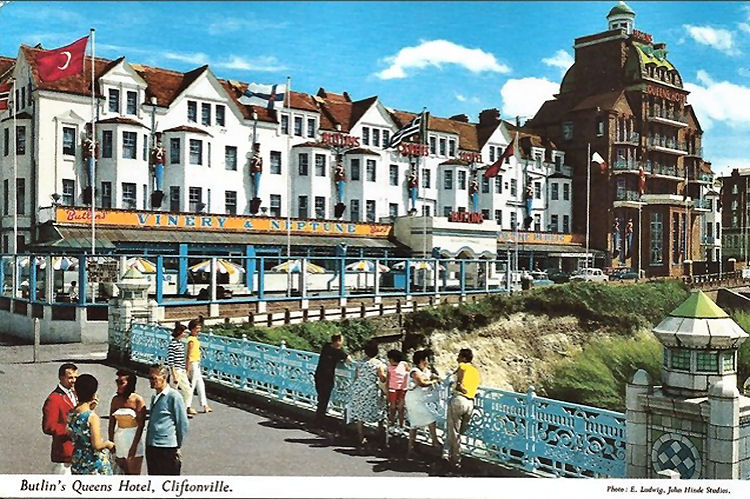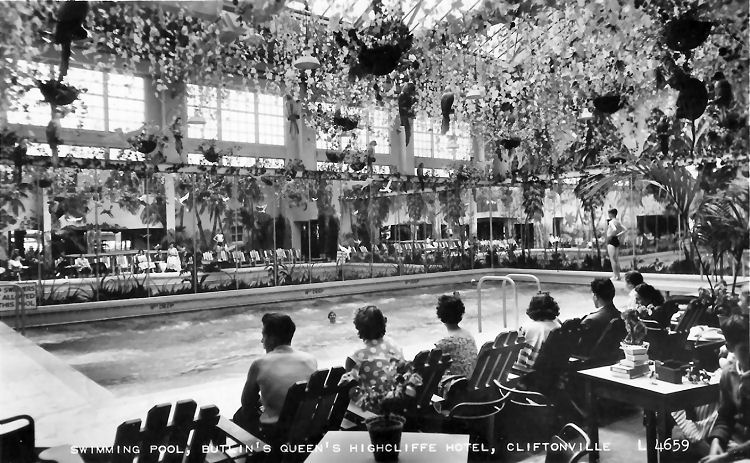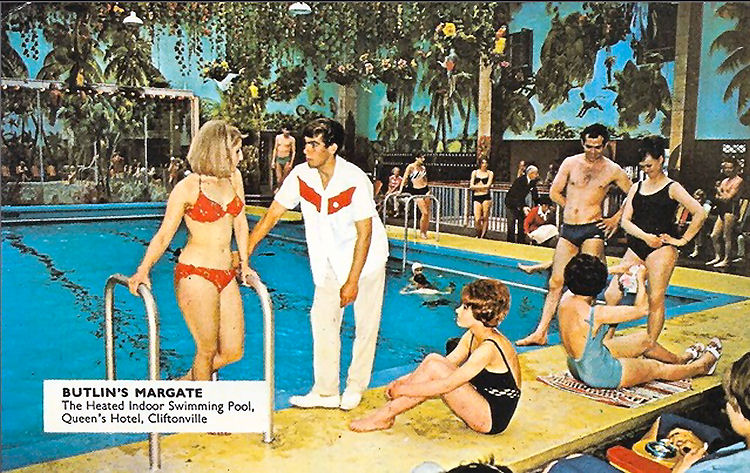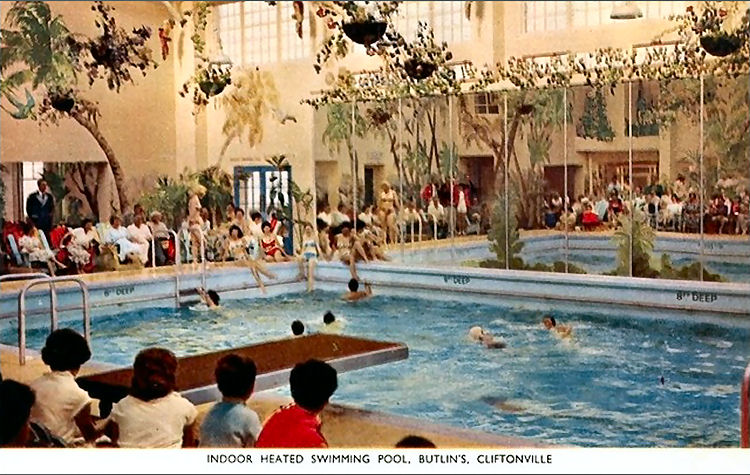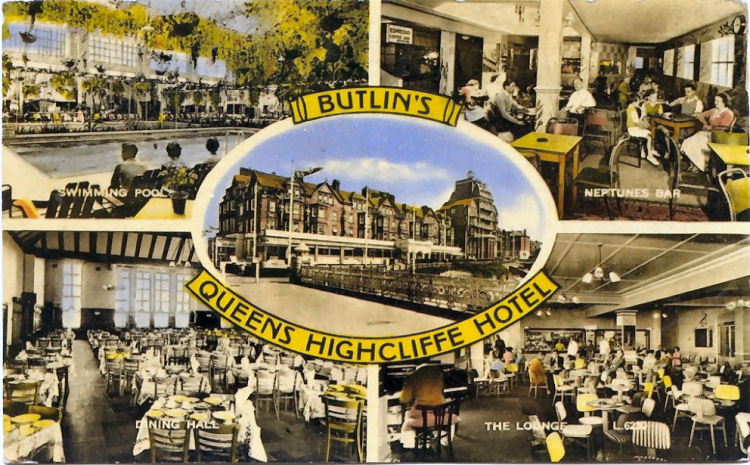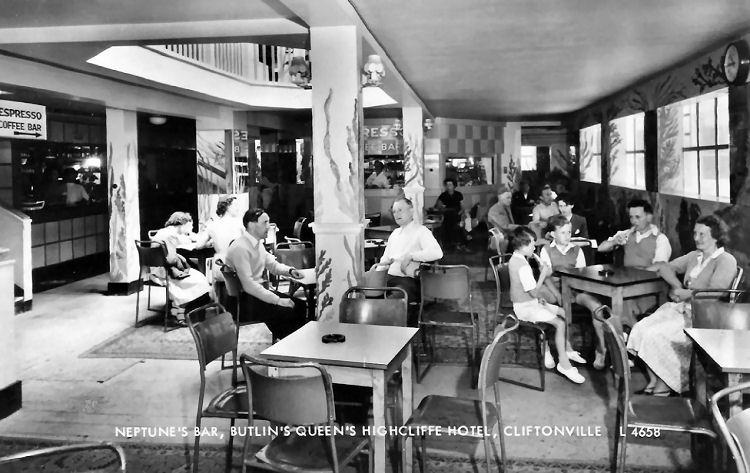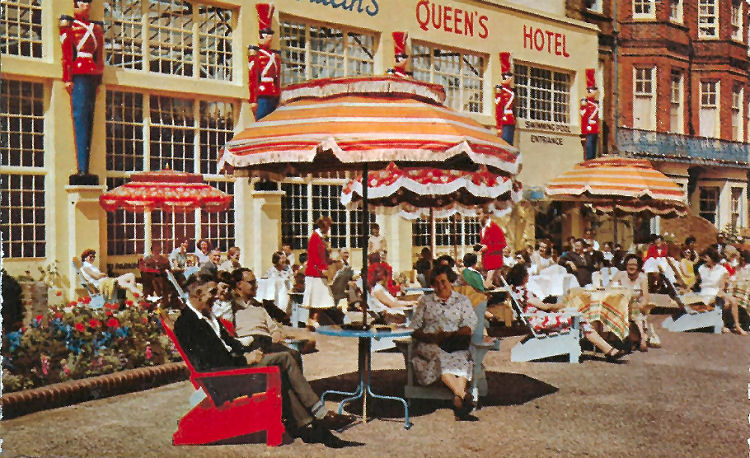|
From the Thanet Advertiser, Friday 4 June 1948.
DEATH LEAP FROM CAR.
Girl's Night Ride. Open verdict at inquest.
The mystery of a 23 year old Irish girls death leap from a car in
which he was riding with two waiters remains unsolved after the
inquest of Margate on Thursday.
Fatal injuries were sustained by Josephine O'Flanagan, I stillroom
maid at the "Queen's Highcliffe Hotel," Cliftonville, when she fell
from a car in Reading Street, Broadstairs, on Friday night. She died
shortly after midnight at the Margate and District General Hospital.
Both men in the car for just terminated there employment as waiters
at the "Queen's Highcliff Hotel" and each assured the coroner the
girl had no reason to jump from the car.
I had no idea why, immediately before the accident, the girl cried
"Are you taking me anywhere?" Both said the girl had no reason to be
frightened.
"It leaves us with the impression that we have not discovered the
real explanation," commented the Coroner to the jury.
The jury saw the car from which the girl fell, and, after half an
hour, were divided in opinion.
After the Coroner had further detailed the evidence the jury decided
that the young woman died from a head injury received when she
jumped from the car but that there was no evidence to show the
reason for her action.
The police have failed to discover any of Miss O'Flannigans
relatives, although they believe they came from Kilkenny, Eire, and
further enquiries are to be made for registration purposes.
A reserved girl.
Mrs. Pauline Roberts, caretaker in charge of the woman's annexe at
the "Queen's Highcliff Hotel," said she knew the girl as Josephine
O'Flanagan and thought she was 23 years of age. She was employed as
a stillroom maid and had been at the hotel since May. She was a
quiet, respectable and reserve girl, who used to go to bed as soon
as she was off duty.
Witness said she had never known the girl to drink. "I never
imagined she had had one drink, never mind anymore. It is a shock to
hear that she had," said Mrs. Roberts.
Between 8 and 9 o'clock on Friday night she saw the girl changing
her dress in the annexe, when she said she was going out.
"She would be affable with members of the staff, but I've never
known her to go out with a man," she said.
The house surgeon at the Margate and District General Hospital, Dr.
C. P. F. Quinnell, said the girl was admitted to the hospital and an
unconscious condition at about 11:15 p.m. on Friday and did not
regain consciousness before she died an hour and a quarter later.
Miss O'Flanagan had a severe crush injury at the back of the skull.
The skull, which was fractured, had been pushed in.
In reply to the Coroner witness said the young woman who never had
associations with men. He attributed marks on the body to the girl
having fallen from the car to the ground.
Lying on the road.
Arthur Edwin Cook, of Afghan Road, Reading Street, who was motor
cycling from Reading Street to Birchington on Friday night, said
that when he left his house he saw the car in Reading Street Road at
about 10:30 p.m. "I saw the car turning round with its headlights on
and I reached Reading Street Road the car was stationary facing
towards Margate with the engine still running," he said. I saw a
number of people standing there and a girl lying on the road with
the driver of the car holding her head.
Afterwards he tried the lock of the door on the left hand side of
the driver. Someone in another car, who had apparently been
following the other car told witness what had happened.
Alois Charles Schmidt, of Annderson Road, Tufnell Park, the driver
of the car, said he was employed as a waiter at the "Queen's
Highcliff Hotel" until Friday afternoon and had been employed there
since 5th August. In the afternoon I went over to the annexe packed
my luggage and was ready to leave for London at about 5 o'clock," he
said.
His colleague, Mr Woodward, and he went to a cafe where he handed
over the wine keys to his successor. Later he decided to stay and go
out for a run in the car. "As we were passing the annexe we saw Miss
O'Flanagan standing talking to a man," he said.
Three drinks.
Witness ask Moss O'Flanagan if she would like to go for a run and he
then went for the car, and returning after ten minutes, he picked up
Mr. Woodward and Miss O'Flanagan and they went to a cafe at Minnis
Bay, where they had coffee. Afterwards they went to a licensed house
where Miss O'Flanagan had two bottles of beer and a port.
"We did not force the drinks on the girl," added witness.
They left Birchington and at 9:45 p.m. reached the Cliftonville cafe
where they stayed for only a few minutes and witness decided to run
Miss O'Flanagan back to the annexe before they went out for
something to eat. When they reached the hotel Miss O'Flanagan said
she had thoroughly enjoyed the run in the car and when witness asked
the young woman if she would like another ride she said, "I would
love to," and went back into the car.
"Not a single word was spoken," continued Schmidt, and we were
driving along when suddenly the girl cried, "You are not taking me
anywhere, are you!" and before I could answer she had vanished. I
only saw a flash as she went out, and I could not say how she open
the door.
Witness said he was watching the road when the accident happened.
"Very extraordinary."
The Coroner:- It seems a very extraordinary thing - did either of
you touch her in any way?
Witness:- No. I would not try. I would not have taken a girl out if
I had not had my friend in the car.
My friend did not touch the girl from the back. "He has difficulty
in getting into the car for his suffers from rheumatism," said
witness.
Answering the Coroner, witness said the car was travelling at 15-18
miles an hour.
Asked why the girl should ask, "Are you taking me anywhere?" witness
said he thought she might have been frightened.
"A sudden brainstorm perhaps," he suggested. She had no reason to be
frightened, and had been perfectly normal. "I was stunned was
surprised," he declared.
Replying to Mr. C. C. Maughan, who represented the two men, witness
said he was a nationalised British subject, served with the French
army during the war, and was gassed.
"I married an Irish girl and have been very happy. My wife and
daughter are on holiday in France. My wife comes from the same town
as Miss O'Flanagan."
Assumes she jumped.
Witness said he could not say whether Miss O'Flanagan jumped or fell
from the car, but from the marks he assumed that she jumped.
Samuel John Woodward, of Edgeley Road, Clapham, who also terminated
his work as a waiter at the "Queen's Highcliffe" on Friday, and
accompanied the previous witness in the car, corroborated Schmidt's
evidence.
"I was lying back enjoying the ride," said witness, "when I heard
the girl say "are you taking me anywhere!" and glancing around I saw
her halfway through the door.
He thought the girl might have spoken on an impulse, but he could
not really say what happened. Neither Schmidt nor he touched a girl
or said anything to her.
The Coroner said he proposed to adjourn the proceedings in order
that further enquiries could be made by the police in the hope of
obtaining the necessary registration particulars.
In order that the two occupants of the car should not have the
proceedings "hanging over their heads" any longer he propose to sum
up and allow the jury to record a verdict.
Unusual facts.
The facts, he continued, were unusual - so unusual that the
importance of the evidence was such that if either or both of the
men had assaulted or threaten the girl, causing her to jump out of
the car, the verdict would be one of manslaughter.
"The evidence has left us with a feelings that we have not
discovered the real explanation," he commented.
The Coroner said he was not saying that the men had not told the
truth for Mr. Woodward's story had been a corroboration of the
evidence of Mr. Schmidt. After the remark made by the girl before
the accident the jury might think the act was intentional. On
medical evidence bore out that Miss O'Flanagan was a completely
respectable girl and it might have been that she was excessively
nervous.
He suggested that in the absence of other evidence of verdict of
accidental death or death by misadventure would be justified.
The jury retired for some considerable time to look at Mr. Schmidt's
car and upon their return the foreman (Mr. S. C. Robinson) said the
jury could not agree on a verdict.
The Coroner again address the jury upon the facts, after which an
open verdict was returned. |
